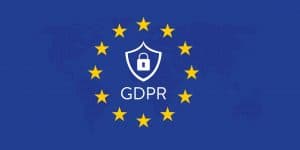GDPR implementation and DPO service
FAQ
The General Data Protection Regulation (GDPR) was implemented to:
- Protect privacy and personal data of European Union (EU) citizens
- Replace the outdated 1995 Data Protection Directive
- Create a uniform data protection standard across the EU
- Strengthen individuals' rights regarding their personal data
- Hold organizations accountable for data protection
Key features:
- Adopted: April 14, 2016
- Enforceable: May 25, 2018
- Applies to all organizations processing EU citizens' data
- Requires explicit consent for data collection and use
- Mandates data breach reporting within 72 hours
- Imposes significant penalties for non-compliance (up to 4% of global revenue or €20 million)
GDPR implementation is a collaborative effort involving:
- National Data Protection Authorities (DPAs) of EU member states
- European Data Protection Board (EDPB)
Roles:
- DPAs: Oversee and enforce GDPR compliance within their jurisdictions
- EDPB: Ensures consistent GDPR application across the EU, provides guidance, and resolves disputes
The EDPB comprises representatives from each EU member state's DPA and has the power to issue binding decisions on GDPR-related issues.
A GDPR audit is an evaluation of an organization's compliance with the General Data Protection Regulation. It:
- Can be conducted by internal or external auditors
- Assesses whether an organization meets its GDPR obligations
- Identifies areas of non-compliance or potential risk
- Provides recommendations for addressing issues
- May require corrective action if non-compliance is found
The General Data Protection Regulation (GDPR) is an EU regulation that:
- Protects privacy and personal data of EU citizens
- Applies to all organizations processing EU citizens' data
- Creates a uniform data protection standard across the EU
- Strengthens individuals' rights regarding their personal data
Key points:
- Adopted: April 14, 2016
- Enforceable: May 25, 2018
- Defines personal data as any information that can identify an individual
- Requires explicit consent for data collection and use
- Grants individuals rights to access, correct, and erase their data
- Mandates data breach reporting within 72 hours
- Imposes significant penalties for non-compliance (up to 4% of global revenue or €20 million)
The GDPR aims to hold organizations accountable for protecting individuals' privacy and personal data in the digital age.
GDPR applies to:
- All organizations processing personal data of EU residents
- EU-based organizations
- Non-EU organizations offering goods/services to EU individuals
- Organizations monitoring behavior of EU individuals
Key points:
- Applies regardless of organization location
- Covers any information that can identify an individual
- Requires compliance with GDPR requirements
- Grants individuals rights regarding their personal data
A DPO:
- Oversees the organization's data protection strategy
- Ensures compliance with data protection regulations
- Acts as a point of contact for stakeholders and authorities
- Requires expert knowledge of data protection laws
- Must be independent and impartial
Steps for auditing GDPR compliance:
- Develop a checklist of GDPR requirements
- Identify audit scope
- Review policies and procedures
- Assess technical measures
- Evaluate organizational measures
- Review third-party agreements
- Conduct stakeholder interviews
- Document findings and recommendations
- Follow up on identified issues
A company must appoint a DPO if it:
- Processes personal data on a large scale
- Processes sensitive data on a large scale
- Engages in systematic monitoring of individuals
- Is a public authority or body (except courts acting judicially)
Companies may voluntarily appoint a DPO to demonstrate commitment to data protection.
There is typically one DPO per organization. Key aspects of DPO implementation:
- Reports directly to senior management
- Monitors data protection practices
- Provides advice on data protection issues
- Conducts data protection impact assessments
- Liaises with authorities and data subjects
- Requires ongoing training and development
- Helps build trust with stakeholders
Implementing a DPO role demonstrates an organization's commitment to protecting personal data and respecting privacy rights.

